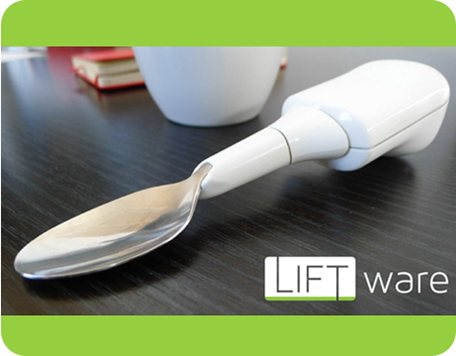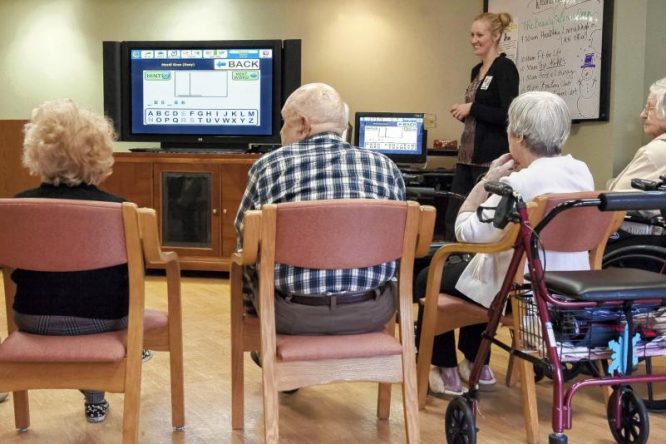 According to the National Parkinson Foundation, around 1 million people currently suffer from Parkinson’s disease in the U.S., and 50,000-60,000 new cases being diagnosed each year.
According to the National Parkinson Foundation, around 1 million people currently suffer from Parkinson’s disease in the U.S., and 50,000-60,000 new cases being diagnosed each year.
For those suffering from the disease, simple tasks such as eating can become increasingly difficult as tremors increase. The LiftWare spoon, developed by Lift Labs, addresses that issue by providing a simple way for sufferers to maintain their independence in one area of their life.
Created by Anupam Pathak, a student at the University of Michigan, the spoon features anti-tremor technology, which counter-balances the user’s shaking hand and allows them to eat without spilling.
Here’s how it works: An embedded computer captures motion signals detected by sensors, identifies the user’s tremor, and then moves the spoon in the opposite direction of that tremor – a process the company calls “active cancellation.” You can read more from the developer and the research behind the technology here.
The LiftWare spoon will be available in September at an MSRP of $295, and includes “Lift Pulse,” a free iOS and Android app that records and calculates the magnitude of the tremors using the phone’s built-in accelerometers.
MARKETING INSIGHT: Although the disease can affect any age group, it’s more prevalent among Boomers and seniors, so just like memory issues, we’re bound to see a subsequent increase in the occurrence of the disease as the population ages. Most existing utensils that are used for therapeutic or restorative dining are focused on ergonomics – this unit is “smart.”
Raised awareness and high-profile persons suffering from disabilities (thank you, Michael J. Fox) have helped to stimulate the number of products and services catering to those consumers. Food and beverage brands, as well as houseware companies, senior care and therapy providers would be wise to partner with smart tech innovations and find ways to cater to the physical ailments suffered by Boomers and seniors.
Regards,
The Varsity Team



